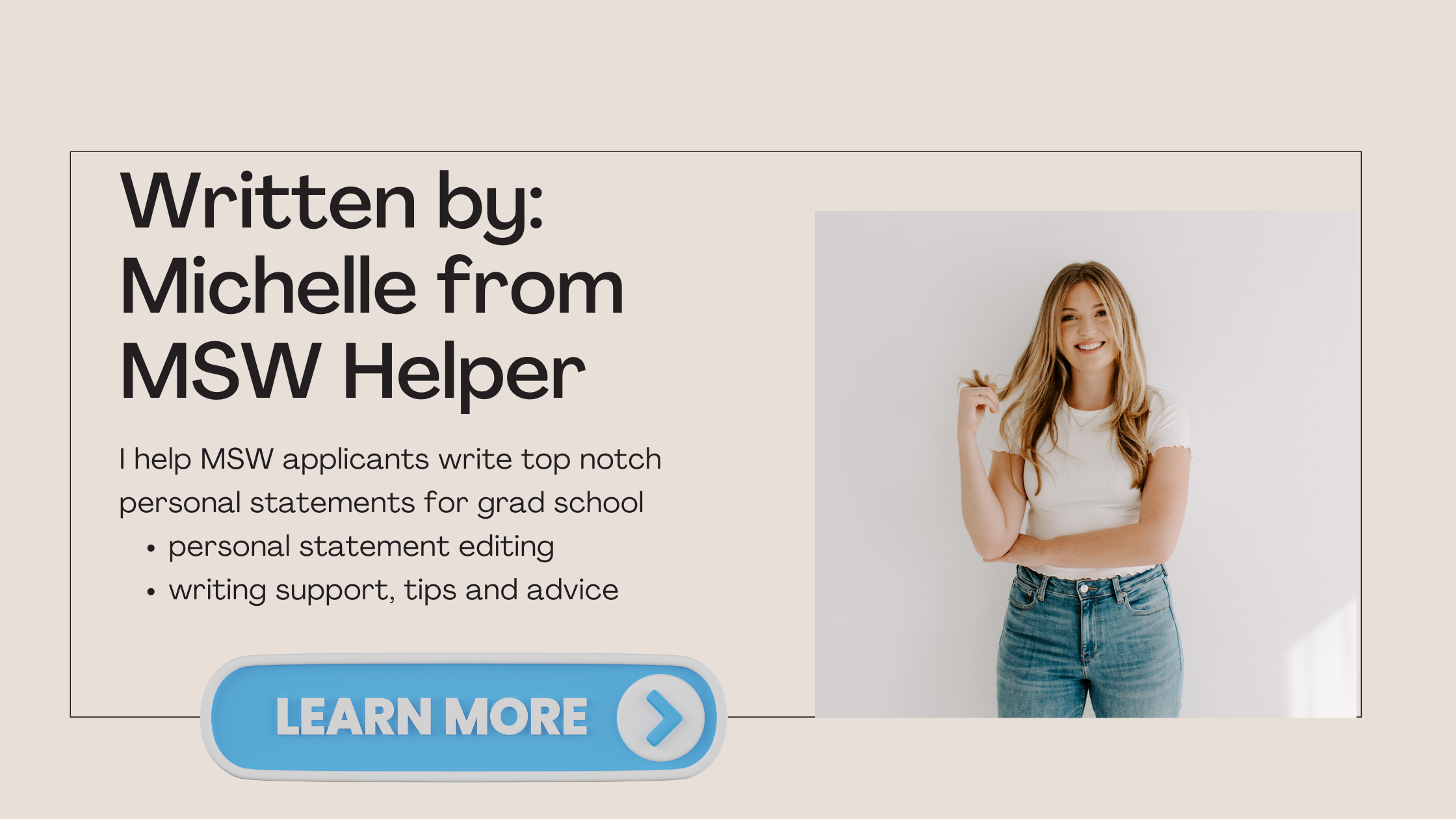Don’t Make These 5 Mistakes When Writing Your Social Work Personal Statement
Over the years, I’ve helped hundreds of applicants apply to their Master of Social Work program. These are the top 5 biggest mistakes I see applicants make when writing a personal statement.
Not treating your personal statement like an academic writing sample
Not giving yourself enough time to write
Not listening to the instructions
Not keeping your personal statement organized
No cohesion between your experience and goals.
Now, let’s dive into these further!
Mistake #1: Not treating your personal statement like an academic writing sample
When writing a personal statement, what you say is just as important as how you say it. Too often, I see applicants overlook the fact that the personal statement serves as an academic writing sample. Although the content is important, treating your personal statement like a writing sample will show whoever is reading your statement your ability to research and write in an academic manner. By using proper formatting, you prove to the reader your academic rigor.
RELATED: tips on formatting your personal statement.
Mistake #2: Not giving yourself enough time
The personal statement is one of the most important papers you’ll write in your academic journey. Don’t treat it like a school assignment where you can throw some stuff together and hope for the best. Start early, come up with an outline of what you want to say before you start writing, and give it the priority it deserves.
Mistake #3: Not listening to the instructions
Schools will often provide specific instructions about what they expect for the personal statement. They may want it formatted a certain way, or there may be a word count/page limit. If a school is asking for specific instructions be sure to follow them to a tee. Not listening to instructions is an easy way for the reader to weed out your personal statement.
RELATED: Tips for meeting the word count in your personal statement
Mistake #4: Not keeping your personal statement organized
Members of admissions committees read hundreds of personal statements per year. With that in mind, it’s safe to assume that they must do a lot of “skimming” when reading personal statements. Make it easy for whoever is reading your personal statement to skim and get the main ideas from your personal statement.
If there are several questions/prompts, you might want to consider giving each prompt a separate heading.
Make sure you summarize your personal statement in both the introduction and concluding paragraphs. I often call this the “thesis statement” or “elevator pitch.” This makes it really easy for the reader to understand what you’re all about in terms of your experiences, background, and goals.
Mistake #5: No cohesion between experience and goals
Most personal statements will ask about you (your professional, personal, and educational experiences), your goals as a social worker, and a discussion of a social justice issue.
I often see applicants make the mistake of talking about conflicting ideas. Here’s an example:
Personal statement A: Let's say an applicant has experience in a women’s shelter. In their personal statement, they discuss their experiences at the shelter. When discussing a social justice issue they talk about an issue in the child welfare system. For their goal as a social worker, they state that they are interested in getting into the healthcare system.
Personal statement B: After getting help with their personal statement, the same applicant instead discusses a social justice issue they noticed during their time at the women’s shelter. This issue inspired them to pursue an MSW so that they can address that issue in a different capacity (Maybe at the macro level).
Although there’s technically nothing wrong with not being intentional about creating cohesion in the personal statement, personal statement B comes off as much stronger than personal statement A because it demonstrates a high degree of critical thinking, and it gives the reader the impression that you’re pursuing social work for the right reasons.
If you can avoid making these common mistakes, you’ll be on your way to writing a strong MSW Personal statement.
RELATED: Check out our comprehensive MSW application guide here
Ready for the next step in your social work journey?
If you found this helpful, don’t forget to enroll in my FREE 10-day mini course for MSW applicants. Through a series of emails, I’ll teach you how to write a strong personal statement for your Master of Social Work program.
MSW Helper also offers personal statement editing specifically for students applying to the Master of Social Work program. Learn more about personal statement editing here.
Happy writing!
-Michelle







